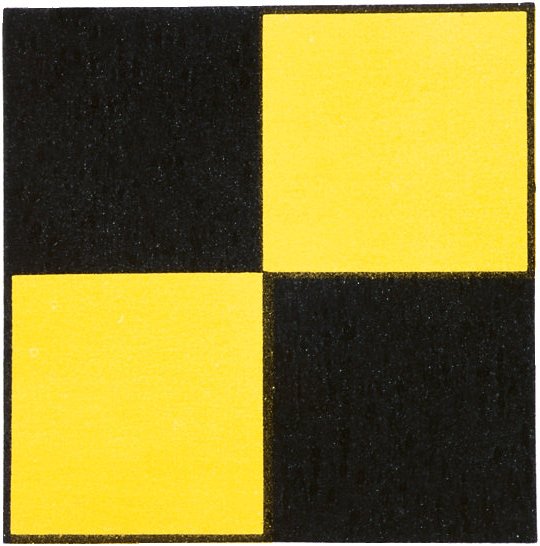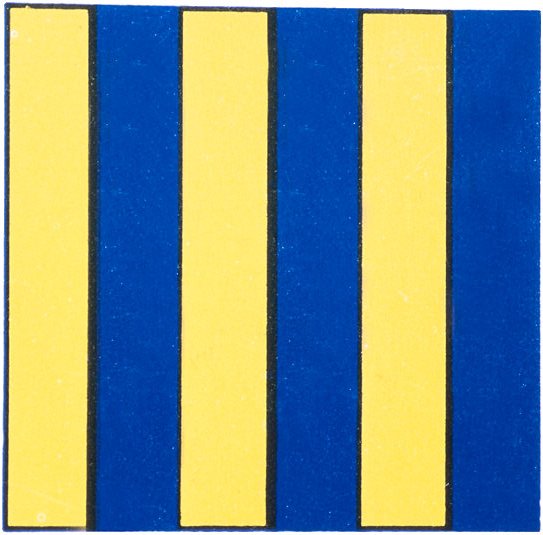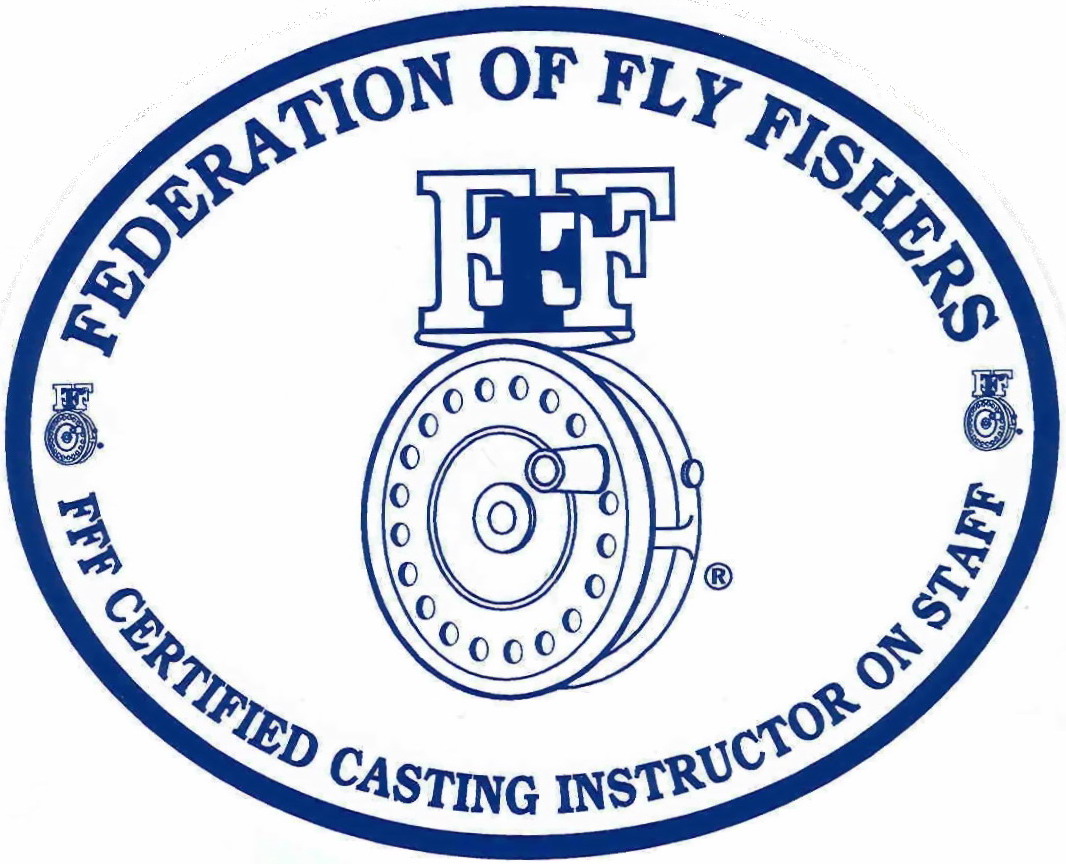Skinny Water Charters Blog
Effects of the Moon and Barometric Pressure on Fishing- Orvis Podcast
by Captain Jim Barr on 04/24/12
The Orvis Fly Fishing Guide Podcast- April 13, 2012
Produced by The Orvis Company and hosted by Tom Rosenbauer, author of The Orvis Fly Fishing Guide, this podcast will provide you with tips on how to get the most of your time on the water. Podcast link below:
http://orvisffguide.libsyn.com/the-effects-of-the-moon-and-barometric-pressure-on-fishing
The Effects of the Moon and Barometric Pressure on FishingFriday, April 13, 2012 9:20AM. In this week's podcast I interview Captain Jim Barr from Rhode Island and we talk about the effects of barometric pressure changes and moon phases on fly fishing, both in Jim's arena of striped bass fishing and also on various freshwater species. If you're looking for easy answers you'll be disappointed, but I think you'll enjoy hearing us talk about the empirical observations we've made over the years. In the Fly Box section this week we discuss methods of weighting flies with non-toxic materials, why you catch bigger fish on worms than you do on flies, and an explanation of the term "turning over" a fly and what you can do to make sure your fly turns over.
Where is the Fishing Good
by Captain Jim Barr on 04/23/12If you cannot catch a striper now in Rhode Island, you should either start fishing in the water, and if that doesn't work, find another pastime.
One that Got Away
by Captain Jim Barr on 04/22/12
Yesterday my client Jason LaButti hooked into a very large striper in Ninigret Pond. We never saw the fish unfortunately, but as soon as this bass was hooked, Jason's rod went double and he was challenged to hold-on. No splashy rises, no great speed, just a locomotive pulling 3,700 lbs. of boat, equipment, the two of us etc. (Some quick calculations: Boat-2100 lbs. dry, Engine-500, me-220, Jason-180, 60 gallons of fuel-360, Minn Kota trolling motor-50, Five 12 volt batteries-200, assorted gear-75. Total- about 3,700 lbs.) This fish towed us twenty feet before it came unbuttoned.
I can only imagine!
Don't be Foolish
by Captain Jim Barr on 04/18/12
As a near and inshore saltwater fly fishing guide I cannot tell you how many times I have watched from my boat fish working over bait (cinder worms) while wading fly casting anglers stand on shore with their hands in their pockets dismayed that the action is beyond the best cast they ever made in their life. It's one thing to be a purist and insist it's all about catching your fish on a fly rod, it's another thing to be, well, foolish. I understand there's this silly pride thing going on here but it absolutely amazes me that many of these same anglers year after year will stand in what looks like disbelief, that they cannot get a fly out to the action. I see this mostly on Ninigret Pond during our worm hatches. Most of these anglers apparently would rather not catch a great fish than to stoop to the level of using a spinning rod. Absurd!
By simply packing a spinning rod in their wader belt and using a casting bubble and a worm fly, this backup rig will allow them to get to the fish that just aren't going to get any closer to shore (that day)...and they could easily cast to the action and be into some fun... but no, they stand on shore, finally shrug their shoulders, give up and leave... it's lunacy. I like to catch my fish on a fly rod where possible but to go fishless because of some fouled reasoning that precludes "resorting" to using a spinning rod so they can make the long cast that's necessary! This affliction must be contagious because each year I see this same "club" increasing in numbers.
Hey, I guess I shouldn't get exercised, to each his own, and I am more than happy to catch what could be their fish.
The Killing Fields
by Captain Jim Barr on 04/14/12
In Rhode Island when there's a two inch snow storm forecasted, there are lines of cars waiting to fuel up and market shelves are devoid of bread and milk.
On Opening Day of trout season- something similar occurs. Walmart sells out of lawn chairs, Dunkin Donuts has no coffee, cigarettes are hard to find, there's trash on the water and most of the crows normally squawking in the trees are on the Rhode Island lake shores and stream banks feasting on trout guts.
Rhode Island's version of "The Killing Fields".
Creating A Win-Win
by Captain Jim Barr on 04/12/12
I recently read an article on the Midcurrent.com website entitled Fly Fishing Jazz: On Stage Fright. (http://midcurrent.com/2012/03/30/fly-fishing-jazz-stage-fright/ ) It's a short piece that talks about how all of us, both new and experienced fly anglers can develop a case of buck fever when we see a fish that we think we may be able to catch but the cast has to be near perfect. Many of us know that sometimes you only have one shot at making the perfect or near perfect cast and that if we blow it, well, the opportunity may be lost. I'm not talking about the kind of fishing where you are in a boat and at your feet are acres of boiling fish that don't require a good cast to catch. You're not targeting a single fish, you're simply making the cast into the insanity knowing darn well that all you have to do is put the fly anywhere near the pack and your gonna be on. I'll speak for myself on that note, if that's the kind of fishing I was presented with more often than not, that would get pretty boring after about the third fish and I would be tempted to put down the rod, pick up the golf clubs again and do something a bit more challenging. No, I am talking about saltwater fly fishing that can sometimes get pretty close to fishing to trout rising to a mayfly, where the cast needs to be near perfect, with the fly landing softly, followed by a careful retrieve or dead drift technique, or even mending line if fishing in a salt river or in water slipping over underwater structure. We do have that kind of saltwater fishing in Rhode Island waters believe it or not.
But this leads me to yet another stream of consciousness.
As a saltwater fishing guide I get anglers with all skill levels on my boat. When a client calls me on the phone to inquire about my availability to take them fishing, the conversation pretty quickly turns to the type of fishing they would like to do. For me, it's a pretty simple discussion, because I don't fish with bait, and therefore it's going to be either fly fishing or light tackle spinning or (artificial) bait casting. If they want to fish with live bait I refer them to somebody else. I am not being a snob- I just like to catch fish on artificials, be it fly patterns or a variety of hard and soft plastic baits. To each his own and the thing about fishing style, well that applies to guides as well as anglers. The vast majority of my guests, right up front, will tell me they are not fly anglers, are really much more comfortable with light tackle but that they might like to try fly fishing while they're out. Given that scenario, by my guests being up-front with me right off the bat, I can pretty quickly and with reasonable certainty forecast the kind of day we are going to have and what kind of water I can take them to. I love clarity.
Then there's the group that say they would mostly want to use fly fishing equipment but depending upon the conditions may pick up the spinning rod occasionally. OK great, that then prompts me to ask a few questions to ascertain their level of fly casting skills. I will usually ask where they have done most of their fly fishing, what rod weights they typically use, do they cast righty or lefty- and then here's the real qualifier, which hand do they reel with. The answers to the first three questions come pretty quickly for most everyone, but when I have to re-ask the question of what hand they use to reel the line in, and that question is followed by a significant pause- or a quick answer, followed by a correction that it's the other hand, then I pretty much understand then and there their level of fly casting proficiency. It's not meant to be a trick question because if they reel with their right hand, then I need to change over the line spools to the opposite retrieve. Probably eighty-percent of anglers who cast with their right hand/arm, reel with their left hand. There are those, particularly the Brits and the more elderly "old school" flycasters who will frequently cast right handed and then change rod hands and reel righty. And again...that's fine, but now I understand quite a bit more about who I am going to have on my boat given my little quiz and their response.
The last general group, and they are by far the smallest population, are the anglers who are either going to bring their own equipment or who sail through my quiz without batting an eye and who cap-off the discussion by telling me not to bother putting any spinning rods on-board. (Now, I am getting excited!) This group typically wants to do everything themselves without any help from me. They arrive early at the ramp and assemble their equipment and consolidate their carry-on gear into one small bag. They have already had at least two cups of coffee each. They go about taking turns to assist one another with stretching their fly lines, and have already taken care of individual comfort requirements. They have brought their own fly boxes, and would never think of asking the guide to tie-on their flies, landing their fish, getting food and drink out of the cooler, etc. All I have to do is drive the boat, put them onto fish and get them back to the dock safely. Perfect! Do I prefer to have more of these type of clients, well yah!
But when I push back from the details and oftentimes the frustrations of a charter, irrespective of the proficiency level of my clients, I get a profound sense of accomplishment and joy in exposing them to an environment that many rarely experience and in some cases are seeing for the first time.
The challenge for me and any fishing guide for that matter is to keep reminding ourselves that we need to dial-back our expectations of our guest's capabilities. I sometimes lose sight that most are not skilled casters and anglers and many have little if any experience in a salt water angling environment. Few have fished for as long and with as much passion as I have (sometimes to their credit because things in the fly fishing world do get a "little" out of balance), and not unlike my past, most have full-time and challenging jobs, families to manage, and as hard as it is for me to believe, many actually enjoy other types of sports. The Horror!
So what can the charter guest do to increase their odds of having a more enjoyable and potentially more productive day on the water? Some thoughts:
- Be straight with your guide as to your level of casting proficiency, before you get on the water. The guide can adjust the nature of the trip and the type of water you will fish in accordance with your abilities.
· Be realistic and practical. Although it's wonderful to catch a fish on a fly rod, there are a myriad of conditions that can really complicate fly fishing in salt water. Your freshwater fly casting abilities oftentimes do not translate well into a saltwater environment. A bumpy boat, menacing winds, difficult casting angles, faster moving fish, heavier equipment, and confined or blocked backcasting room can all contribute to complicating your day. Understand your limitations and the environmental conditions and adjust your angling conventions accordingly. I have seen too many guests drive themselves to frustration and in some cases anger due to insisting on using the fly rod in very difficult conditions.
· Tell your guide what's important to you and he will do everything he can to accommodate your wishes. Is your day on the water more about "just being out there". Do you want a mix of fishing and sightseeing and perhaps a bit of history of the area you're near? Are you after the trophy fish, or that you care not to catch a certain species of fish.
· Be patient with and trust your guide. He knows his waters, generally where the fish are and at what time of day it's best to pursue them. Most guides will not guarantee you will catch fish. Ocean fish, unlike trout or freshwater bass species are constantly on the move. The fishing location that was good yesterday may not be good today. His responsibility is to put you into the best position that is safe and that will allow you to hook up. Certain weather and sea state conditions may be simply too dangerous to fish in even though they may very well hold the fish you want to catch.
So as a guide my job is all about making my guest's day on the water an enjoyable outing. I want them to be comfortable, feel safe, have fun, catch fish and in no way be intimidated by their real or perceived lack of skill. If I can deliver accordingly, my guests become my friends, and we all want to fish together again.
I love a Win-Win.
Let 'em Be
by Captain Jim Barr on 04/06/12I realize that every early spring there is this pent-up urge for saltwater anglers to get the kinks out and get a fishing fix. At the same time I also know that the season of decent sized fish runs from mid-to late April through most of November. I also don't intend on being a snob about such things, but when I see the early birds dying to be the first to "catch the worm" so to speak, spending hours on end at the corner of Second Beach and Sachuest Point catching 25-50 and more 10" bass, one after another and throwing them back in the surf with a certain disdain for their size.... I have to ask, "what's the point?" You know they are ALL going to be small fry. You know that they are ALL going to be easy to catch. Why not give it a couple of weeks and in the meantime go catch some Bluegills. As for these tiny stripers that are tomorrows great fighting fish...Why not Let 'em Be?
Turning the Clock Back
by Captain Jim Barr on 04/02/12
At least once a year and sometimes more frequently, I like to turn the clock back. I am not talking about the adjustments to daylight savings time, or corrections to my wrist watch or the clock on the wall, but rather the process of stepping back in time just for half a day or so and pretending I was a young kid and fishing like I did back then. For me, that means a departure from the glitzy boat that goes faster than the car I used to drive, the graphite fly rods that weigh three ounces, and fly reels milled from aircraft-grade aluminum.
My father was a spin fisherman, and fished with bait. There was nothing wrong with that, in most cases spin fishing and threading a night crawler onto an Eagle Claw hook is how most of us started fishing. For me there was no other way to fish. Several copies of Field & Stream magazine were always laying about the house, usually in the john, and I faintly recall images of an angler using a fly rod and standing in a western stream or floating in a canoe on the Allaghash. These were places that to me were way beyond my world.
My father was a businessman, and as a youth it felt at times like I was a military brat. It seemed at times that as a family we no sooner settled into a new community and I had developed some pals and got to know the local fishing holes, when we were soon packing up and moving off to someplace new because dad was once again changing jobs. I will say this however, as much a disappointment as it was to pick up stakes and relocate, each time we did so it was always to a better place. For me that meant better places to fish. Later while I was in high school we lived on a lake in north-central Massachusetts that provided great ice fishing in the winter and absolutely wonderful largemouth bass fishing in the warmer months. I had become adept at locating and catching largemouth bass with a spinning rod. I would stay out way past dark in my wooden rowboat, many times on the opposite end of the lake from where we lived. I loved the smell of the water and the lily pads and the sounds of croaking frogs.
I swam a lot in that lake and even today when I go swimming, I keep my head above the water line as if I was still looking out for tree stumps, muskrats and water snakes. I would don a mask, snorkel and fins and dive among the stumps, weeds and brush piles and in so doing I would find where the big largemouth bass lay and return later and catch many of them.
After high school I was off to college getting involved in competitive sports, parties, fraternity life, and some studying mixed in for good measure, but no field sports. Following graduation my passion turned to climbing mountains, but after some time I sensed I was going nowhere fast. I began a career, married and had a family. During all that time fishing was never on my radar, it was as if it had never been a part of me.
It was about the time I turned 45 when my dear friend Jim Mullen called one day and suggested we go fishing. It sounded great but frankly, a bit foreign, it had been so long. Following a quick trip to the local hardware store to gear-up, we launched his canoe and paddled to a small island on the north side of Wordens Pond where we wet-waded a long and shallow sandbar. After several blind casts with my $20 spinning rod/reel combo, I tied into a big Northern Pike. He stayed buttoned but only for a sweet few seconds before his razor sharp teeth severed the line. Within those fleeting moments I experienced once again the thrill of fighting a fish- feeling that familiar pull, the head shaking vibrations that telegraphed through the rod and into my wrist, and the sight of a crescent mirror leaping above the eel grass. It was pure exhilaration.
So it was there on that sandbar, nearly twenty years ago, with my best friend who has since left this world, that my clock was turned back. Now, in the midst of what has become my fishing business, for a day or two every summer I leave behind my modern entrapments- the fancy boat, the spaceage flyrods and reels that cost more than my college tuition, the "Orvis-wear", together with the fishing guide's disposition. I return to a much simpler time to once again angle as a youth- in a simple row boat, using an inexpensive spinning rod and reel, and carrying a plastic box containing a few Fred Arbogast classics.
Thanks Dad and Jim, you have made my life richer.
Worm Hatch and Dry Fly Angling- Many Similarities
by Captain Jim Barr on 04/01/12
I have always maintained that fishing the "Worm Hatch" is the closest thing anglers will experience to dry fly fishing in salt water. Unlike most angling, be it surfcasting, spin casting and even fly casting where the angler is fishing off a beach, ledge or from a boat- where one is exerting a lot of force to cast to distant fish in heavy water and oftentimes in windy conditions... flycasting in a salt pond during a worm emergence is mostly about finesse. Anyone who tells you that catching stripers during the worm hatch is easy stuff- has either been lucky (once), is a heck of alot better angler than anyone I know, or they are just down right full of it.
There are those dry fly freshwater anglers who may disagree with me when I say this, but fishing the worm hatch requires many of the same skills as dry fly fishing for picky trout. Granted, we don't worry too much about getting the right drift in moving water, or having to mend a fly line to eliminate drag, or choosing from the dizzying array of emerger or dry fly patterns in a trout fly box in order to match the hatch- but there are many more similarities that don't readily meet the eye of the neophyte flyrodding worm hatch angler.
Like trout fishing, one is generally fishing in an enclosed body of water, not unlike a lake or pond, typically there is a bit of wind to deal with (although there are days when you feel like you are fishing in Patagonia with the non-stop menacing winds in your face), and oftentimes like trout fishing you are in perfectly still water where "quiet" needs to be the rule. You readily see the bait as trout anglers see emerging insects. You see the riseforms and outright explosions of feeding fish just as you do when trout fishing. Your equipment is much more robust than the rods, reels, and lines one uses in a trout stream, but effectively using the fly rod still requires good casting skills to properly deliver the fly.
From my perspective the key similarities of fly fishing the worm hatch and dry fly fishing for trout are: stealth, casting accuracy, pattern choice, finesse in the retrieve, and patience. The biggest challenge of all of these is the Ability to Deliver the Fly...and that's about good casting skills. From shore, it's oftentime the need to be able to cast a long line and sometimes with wind in your face (but not always...sometimes these fish will be feeding very close to you and a long line is not required). It's also about being able to make an effective cast with limited backcast room (if you are casting from as deep as you dare wade while being challenged by bushes, reeds, trees etc in your backcast room.) You need to develop not only a good rollcast (including an off-shoulder rollcast), but more critically you need to be able to cast using a backhand presentation. From a boat if you are sharing it with another angler or a captain and another angler....same deal, you need to be able to have mastered these casts. Otherwise you just are not going to catch as many fish as you would otherwise.
Practice these casts and if you cannot make them on your own, arrange for casting lessons from a qualified flycasting instructor, it will pay dividends not only for worm hatch fishing but for all other types of flyfishing you undertake.
Rhode Island's Saltwater Fishing is Poised on the Edge
by Captain Jim Barr on 04/01/12
It's April 1st and many R.I. anglers are like race horses in the starting gates, awaiting the signal that the 2012 fishing season has started in earnest. There have been striper "fish sticks" on the Aquidneck Island beaches for a week or so and there have been some decent stripers taken through the cold months primarily in upper Narragansett Bay and the Seekonk River... like every year, but the serious fishing/catching has not as yet kicked off. Herring have been in their runs for several weeks now and that annual migration will continue into early May. Winter-over stripers in the Narrow River have been banging these migrating herring. My fishing gear, fly inventory and boats are "locked and loaded" and after I get my taxes filed next week, I will begin prospecting for decent size fish. A trip or two into Worden's Pond in South Kingstown is on the agenda to hunt for Pike and Largemouth. Stocked trout fishing in R.I. waters holds no interest in my book. I don't want to appear snobbish, but if I do venture out for any trout fishing it's going to be a trip to Cape Cod to fish in Nickerson State Park, specifically Cliff Pond. There are several shallow water "shelves" that provide some outstanding midging and dry fly action that can be a blast... for me, it's a rite of spring making that enjoyable trip to Brewster, followed by an italian dinner and a craft brew...sweet stuff.
My first serious striper angling will begin in Ninigret Pond for the annual cinder worm "hatch". This wonderful fishery offers top water sight fishing for stripers of all sizes... short casts, lots of fish, gorgeous scenery and an opportunity to reacquaint with old friends and new folks as well. I still have several very good days in May and early June for charters to the salt ponds for the worm hatch fishing, so if you're interested, please contact me. Email and telephone contact information is plastered all over this website.





